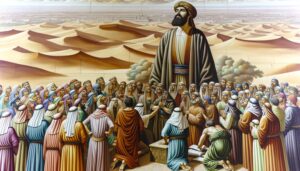Observer of Times Meaning Bible: Forbidden Practices
The term ‘observer of times‘ in the Bible, originating from the Hebrew ‘me’onen,’ designates practices like divination and future-telling through celestial events, which are strongly condemned in scripture. Key passages such as Deuteronomy 18:10-12 and 2 Kings 21:6 emphasize these activities as detestable and linked to paganism, stressing the theological importance of relying on God’s providence and maintaining covenantal fidelity.
Historical context reveals influences from Mesopotamian and Egyptian cultures, where such practices were common. These prohibitions serve as ethical guidelines, warning against syncretism and promoting spiritual purity.
For those seeking a deeper understanding, much more insightful information remains available.

Observer of Times Meaning in the Bible: Discernment vs. Divination
| Aspect | Details |
|---|---|
| Definition | One who interprets omens, astrological signs, or engages in divination |
| Biblical Reference | Deuteronomy 18:10–12 condemns observers of times as abominations |
| Hebrew Term | ‘Onen’ – related to soothsaying or fortune-telling |
| Forbidden Practices | Astrology, sorcery, enchantments, and seeking signs from creation |
| Spiritual Lesson | Warns against trusting occult methods and calls for faith in God’s guidance |
Biblical Occurrences

The term ‘observer of times‘ appears in several key biblical passages, often within the context of admonitions against practices associated with divination and occultism. In Deuteronomy 18:10-12, it is listed among prohibited activities, reflecting the Israelites’ need to remain distinct from pagan customs.
Similarly, 2 Kings 21:6 condemns King Manasseh for engaging in this practice, casting it as a violation of covenantal fidelity. The term often translates from the Hebrew ‘me’onen,’ suggesting attempts to predict the future through supernatural means.
Such practices were viewed as direct affronts to divine sovereignty, undermining trust in God’s providence. This theological insight underscores a broader biblical insistence on exclusive reliance on divine revelation for guidance and wisdom.
Hebrew Origins
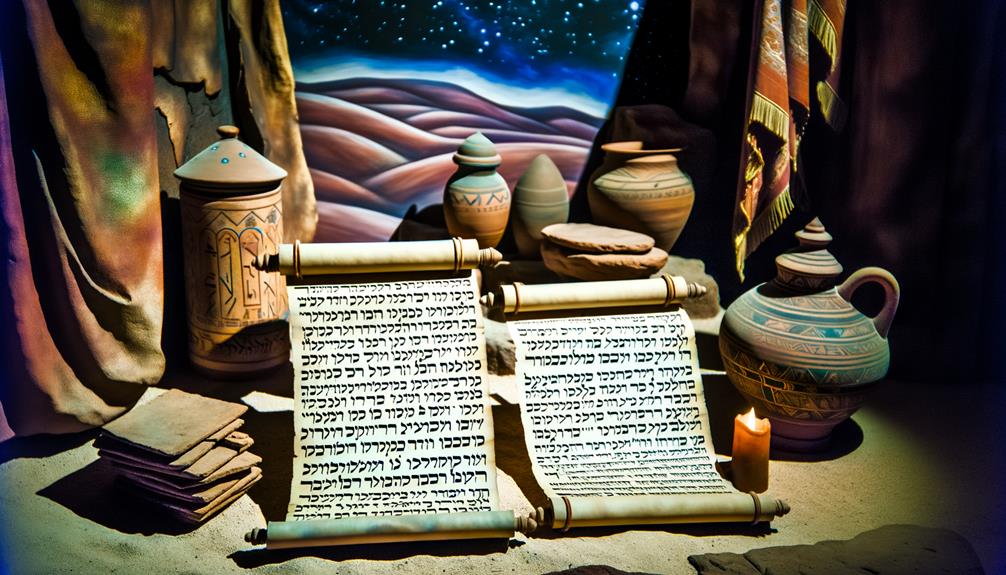
The term ‘observer of times‘ finds its etymological roots in the Hebrew word ‘מְעוֹנֵן’ (me’onen), which conveys connotations of divination and future-telling.
In the cultural context of ancient Israel, such practices were often associated with neighboring pagan traditions, reflecting a theological tension between the worship of Yahweh and the influence of surrounding nations.
Understanding this term within its Hebrew origins provides critical insight into the prohibitions against occult practices in the biblical text, underscoring the distinctiveness of Israelite religious identity.
Hebrew Word Analysis
The Hebrew term ‘me’onen,’ often translated as ‘observer of times,’ provides insight into ancient Israelite practices and theological understandings.
The term ‘me’onen’ (מעונן) originates from a root suggesting divination or soothsaying, indicating a practice of interpreting omens or celestial events.
In Deuteronomy 18:10-12, ‘me’onen’ is listed among prohibited activities, reflecting a theological stance against reliance on human methods to predict the future, which contrasted with the dependence on divine revelation.
This proscription underscores the ancient Israelites’ emphasis on Yahweh’s sovereignty and the rejection of pagan practices prevalent in surrounding cultures.
It highlights a critical aspect of Israelite identity—distinction through exclusive worship and trust in their deity’s providence.
Cultural Context Insight
In exploring the cultural context of the term ‘me’onen,’ one must consider the broader milieu of ancient Near Eastern practices and the distinct theological imperatives that shaped Israelite identity.
The term, often translated as ‘observer of times‘ or ‘soothsayer,’ reflects practices common among neighboring cultures, such as divination and astrology. These practices were aimed at predicting the future or interpreting omens, often through celestial phenomena.
However, the Hebrew Bible consistently condemns such activities, emphasizing their incompatibility with the worship of Yahweh. This theological stance underscored Israel’s unique covenant relationship with God, contrasting sharply with the syncretistic and polytheistic tendencies of surrounding nations.
Consequently, ‘me’onen’ serves as a focal point for understanding Israel’s distinct spiritual identity and ethical boundaries.
Historical Context
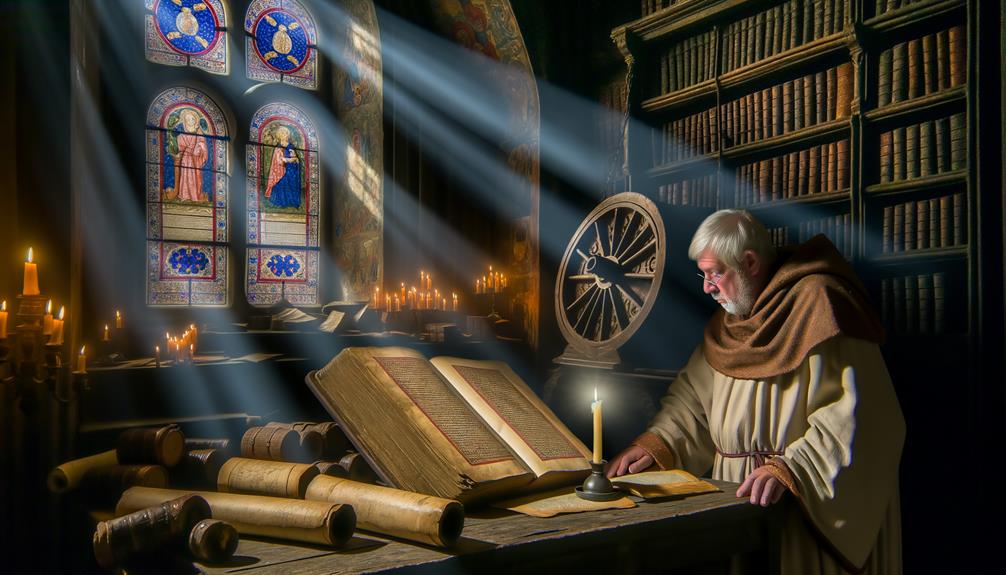
Understanding the term ‘observer of times‘ within its historical context necessitates an examination of ancient cultural practices that influenced biblical texts.
By analyzing these texts, particularly those in the Old Scripture, one can uncover how historical interpretations of astrology and celestial events were viewed in ancient Israel.
This analysis not only sheds light on the societal norms of the time but also provides theological insight into the biblical stance against such practices.
Ancient Cultural Practices
Although the phrase ‘observer of times‘ may seem ambiguous to modern readers, its roots are deeply embedded in the ancient cultural practices of divination and astrology prevalent in the surrounding Near Eastern civilizations.
These practices involved interpreting celestial phenomena to predict future events, an effort to discern divine will or fate. Mesopotamians meticulously recorded celestial movements, while Egyptians relied on astrological signs for guidance.
These traditions influenced neighboring cultures, including the Israelites, who encountered such customs as they interacted with Assyrians, Babylonians, and Canaanites.
However, the Hebrew Bible often condemns these practices, viewing them as incompatible with monotheistic worship of Yahweh.
This historical context illuminates the theological and cultural tensions behind the term ‘observer of times’ in biblical discourse.
Biblical Texts Analysis
The phrase ‘observer of times’ in biblical texts encapsulates a significant intersection of theology and cultural interaction, reflecting the Israelites’ encounter with and repudiation of foreign divinatory practices. This term appears in various biblical contexts, prominently within the Deuteronomic and prophetic literature, underscoring a clear theological stance against adopting pagan rituals.
| Biblical Reference | Contextual Significance |
|---|---|
| Deuteronomy 18:10-12 | Condemnation of divination, including ‘observer of times’, to preserve Israelite purity |
| 2 Kings 21:6 | King Manasseh’s practices illustrating Israel’s struggles with syncretism |
| Isaiah 47:13-14 | Prophetic rebuke of Babylonian astrologers, a cautionary example for Israel |
| Leviticus 19:26 | Prohibition against enchantments and omens, reinforcing covenantal faithfulness |
These references reveal a concerted effort to maintain theological purity and distinguish Israel from surrounding nations.
Historical Interpretations
Examining the historical interpretations of the term ‘observer of times’ necessitates an exploration of the ancient Near Eastern milieu, where diverse divinatory practices were prevalent and often infiltrated Israelite society. This term, found in Deuteronomy 18:10, condemns those engaging in specific forms of pagan divination.
Historically, these practices included:
- Astrology: Interpreting celestial bodies to predict events.
- Augury: Divining future events through the behavior of birds.
- Necromancy: Consulting the dead to gain insight.
These practices were common among surrounding cultures such as the Babylonians and Egyptians, influencing Israelite behaviors.
Theological insight suggests that forbidding these practices aimed to maintain Israel’s covenantal purity and reliance on Yahweh, as opposed to foreign deities and methods of divination.
Theological Interpretations

Within the domain of theological interpretations, the phrase ‘observer of times’ has been scrutinized for its implications regarding divination and the adherence to biblical commandments.
Scholars argue that the term, primarily found in Deuteronomy 18:10, condemns practices associated with predicting future events through supernatural means. This prohibition underscores a theological perspective emphasizing reliance on God rather than occult practices.
| Theological Aspect | Scriptural Reference | Interpretation |
|---|---|---|
| Prohibition of Divination | Deuteronomy 18:10 | Condemns seeking future knowledge through occult means |
| Adherence to Commandments | Leviticus 19:26 | Stresses following divine laws over human practices |
| Reliance on God | Isaiah 8:19 | Advocates seeking God’s guidance over mediums |
| Historical Context | Exodus 22:18 | Reflects ancient Israelite laws against sorcery |
| Ethical Implications | Jeremiah 27:9 | Warns against the moral corruption of divination |
This table elucidates different theological aspects related to the phrase, providing a thorough understanding for the audience.
Cultural Practices
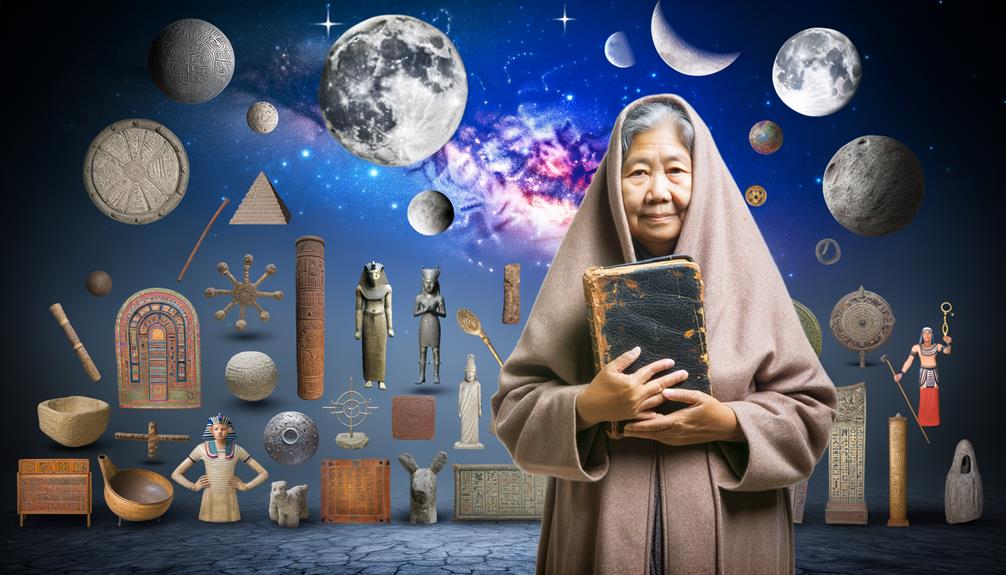
While examining the cultural practices surrounding the phrase ‘observer of times,’ it becomes evident that many ancient civilizations, including the Israelites, grappled with the tension between traditional customs and the mandates of their faith.
Historical evidence suggests that these practices often involved attempts to predict the future or seek divine guidance through various means:
- Astrology: Many cultures looked to the stars to divine omens.
- Divination: Methods like casting lots or reading animal entrails were common.
- Seasonal Festivals: Tied to agricultural cycles, these were pivotal in understanding time and seasons.
These activities reveal a deep-seated human desire to understand and influence the future, yet they often conflicted with Biblical injunctions emphasizing reliance on God’s will alone.
Warnings and Prohibitions
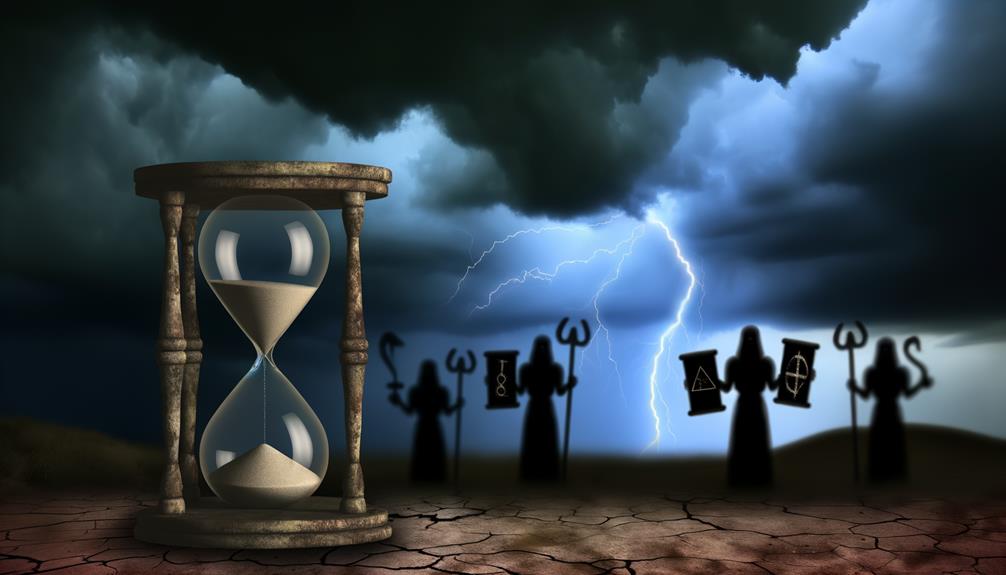
The Bible contains numerous instances where God explicitly warns against and prohibits the practices of observing times, often associating these activities with idolatry and paganism.
In Deuteronomy 18:10-12, God commands the Israelites to avoid divination, astrology, and similar practices, categorizing them as ‘detestable‘ and linked to nations He intends to displace.
Historically, these prohibitions reflect a theological imperative to maintain spiritual purity and exclusive allegiance to Yahweh. The Israelites, surrounded by polytheistic cultures, faced the constant temptation to incorporate foreign rituals.
Theologically, such practices are viewed as breaches of the First Commandment, which demands exclusive worship of God. These warnings underscore the importance of religious integrity and the rejection of syncretism in maintaining covenantal faithfulness.
Modern Relevance

Considering the historical context and theological warnings against observing times, it is pertinent to analyze how these ancient prohibitions retain their significance in contemporary religious practice and belief.
Modern relevance emerges through several lenses:
- Moral and Ethical Guidance: The prohibitions serve as ethical boundary markers for religious communities, emphasizing trust in divine providence over astrological or divinatory practices.
- Interfaith Dialogue: These ancient texts inform current discussions on religious syncretism and the integration of non-biblical spiritual practices within Christianity.
- Cultural Critique: The warnings against observing times offer a framework for critiquing contemporary culture’s fascination with horoscopes and new-age spirituality, urging a return to scriptural foundations.
Such reflections underscore the enduring impact of biblical teachings on modern faith.
Conclusion
The term ‘observer of times‘ in biblical texts, stemming from Hebrew origins and contextualized within historical and theological frameworks, represents a practice often associated with divination and prohibited by religious laws.
Despite potential objections that these ancient prohibitions lack modern relevance, the enduring warnings against such practices underscore a timeless admonition against seeking guidance outside divine revelation.
This analysis reveals the persistent theological and cultural implications of these biblical injunctions.



